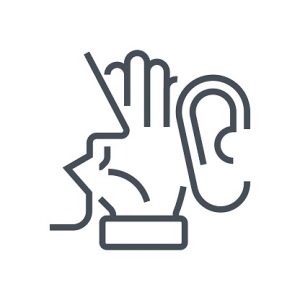
Vocabulary and grammar. When I was a child, I thought that these were the only two things I needed in order to learn another language. I thought that if I just had enough words and knew how to put them together correctly, all the gifts that languages have to offer would be mine. Now, after having studied other languages for more than 20 years and having taught English for almost 13, I know that there is so much more to language learning than nouns and verbs. I also know that some of the most essential things a language learner needs to succeed will never be found in any language book or classroom, but deep within their own being.
You must be brave to learn a language. You must face your fear of being laughed at.
You must be wise to learn a language. You must know that everyone has experienced the same fear. You must be even wiser to know that no one is laughing at you. You must be wiser still to know that if someone does laugh at you, the problem is not with your language abilities, but with that person’s lack of kindness.
You must have a sense of humor to learn a language, because being able to laugh with others at your own mistakes will help you remain brave enough to keep making new mistakes and, as a result, to keep learning.
You must be gentle to learn a language, because the best response when you make the same old mistakes, again and again and again, is not “That was so stupid of me,” but “That is me, like everyone else, simply being human.”
You must have fun to learn a language, because language learning, like life, is not so serious.
You must be humble to learn a language. You must admit to not knowing.
You must be vulnerable to learn a language. You must be able to say “I don’t understand” and “I need help.”
You must be smart to learn a language. You must resist the urge to say, “I wish I could speak so fast that I could speak without thinking!” You must remember that thinking before you speak, in any language—in every language—is a very good thing.
You must be patient to learn a language, because one day may be enough to love a language, but it is not enough to know it.
You must have vision to learn a language, so you can see your progress every day, even if it is small.
You must be open to learn a language, because different sounds and words soon make way for different experiences and ideas. A closed mind can acknowledge them, but only an open mind and an open heart can appreciate them.
You must be present to learn a language, because even though you may wish you had learned the language you are studying five or ten or 20 years ago, you didn’t. And longing to be someone you are not yet—fluent—prevents you from being who you are—a brave language learner. It also prevents you from being where you are, and from seeing all of the opportunities around you right now.
You must be confident to learn a language and believe in your ability to express yourself, and in the value of what you want and need to express.
You must be motivated to learn a language, because in the moments when it feels too difficult, you may feel like giving up. But you can’t give up, because on the other side of what feels hard or even impossible, there are amazing people to meet, incredible experiences to have, and dreams to transform into reality.
You must love in order to learn a language, if not always the language, then at least always yourself. Then on the days when you feel what all language learners have felt—frustrated, like you’re not improving at all, like you can’t understand or say what you need to, like the opportunities you want are far out of reach—you will still remember that your worth is not in how many languages you know or in how well you speak them, but in your heart, and how much of it you give.
Jennifer Helfand has an EdM in TESOL from Boston University and a CELTA from International House Madrid, Spain, and has been teaching ESL in the U.S. and abroad, for the past twelve years. She currently teaches at Drexel University and also provides private instruction.





